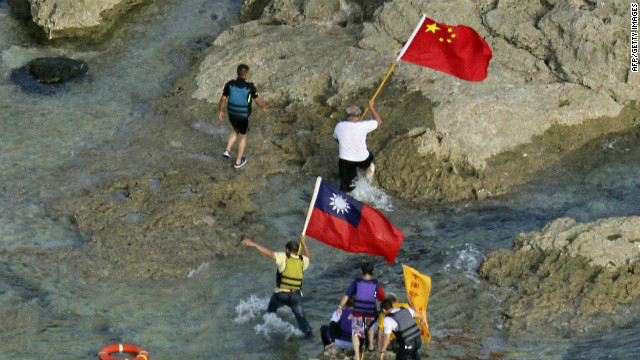Recent discussion in the wake of Saudi Arabia's refusal to accept a nonpermanent seat on the U.N. Security Council has prompted bewilderment – and renewed questions about the Kingdom’s foreign policy. Yet accusations of irresponsibility are inaccurate and misleading. Indeed, despite the criticisms leveled by commentators including Fareed Zakaria on these very pages, the fundamentals of Saudi foreign policy have not changed in decades, and are based on consistent and clear foundations.
As the “senior player” in the Arab world, as the Kingdom was recently described by U.S. Secretary of State John Kerry, Saudi Arabia works to promote economic stability and political security via a moderating energy policy and careful strategic posture that is aimed at countering and neutralizing the upheaval that has been tearing the Muslim and Arab worlds apart.
 This approach has been on display in recent Saudi actions.
This approach has been on display in recent Saudi actions.
When an insurgency sought to overthrow the Bahraini government in 2011, a Saudi-led Cooperation Council for the Arab States of the Gulf (GCC) military contingent stepped in to secure the critical state infrastructure of this tiny nation. In addition, the Kingdom is also heavily engaged in attempting to stabilize Yemen, primarily through economic and security assistance based on the GCC plan that replaced former President Ali Abdullah Saleh with an interim government. This new leadership is now drawing up of a new constitution for elections next year. And in Egypt, Saudi Arabia has stepped in as a crucial player in pushing back against Muslim Brotherhood ideology, including through providing the financial resources needed to strengthen the more moderate but temporary government in Cairo.
All this is in keeping with Saudi Arabia’s role and responsibilities as the cradle of Islam. After all, the Kingdom has a unique standing vis-a-vis the more than 1.5 billion Muslims worldwide, a leadership role enhanced by the Kingdom's willingness to expend formidable financial and economic resources in assisting other nations in dire straits to maintain stability.
This approach has in turn generated a growing foreign policy assertiveness that is being transformed from primarily reactive to proactive. The fact is that the Kingdom also has global responsibilities, including trying to combat Islamic extremism. And despite the popular image in the United States that Saudi money is about funding terror, the Kingdom was actually a victim of al Qaeda-backed terrorism on its own soil several years before the tragic events of September 11, 2001. In 1995, for example, al Qaeda struck a National Guard training facility in Riyadh. This was followed by the Riyadh compound bombings in May 2003. The latter attack claimed dozens of lives and prompted the Saudis to launch a massive security upgrade to root out terrorists in their midst and overseas through hard (military and police) and soft (educative and financial) tactics.
But years before these changes, Saudi Arabia had already staked out its diplomatic position on the al Qaeda threat. Following the 1998 terrorist attacks on the U.S. embassies in Tanzania and Kenya, Saudi Arabia is said to have requested that the Taliban hand over Osama bin Laden. The former head of Saudi Arabian intelligence, Prince Turki al-Faisal, reportedly said back in 2001 that Taliban leader Mullah Omar had initially agreed to grant the request, but changed his mind and was “abusive” about the Kingdom.
Despite the failure to secure bin Laden, the Saudi counter-terrorism effort decimated al Qaeda’s infrastructure in the Kingdom, preventing attacks both at home and abroad in the process including a heavily Saudi-backed infiltration scheme that thwarted an alleged attempt to place bombs on two cargo planes in Yemen that had been destined for the United States.
But Saudi Arabia does not only have a responsibility to push for security from terrorism – as the world’s largest oil exporter, it also has a global responsibility to ensure the well-being of the world’s financial system. Serving as the undisputed leader of the Organization of the Petroleum Exporting Countries, the Saudis have managed oil production in a consistent, sensible manner that has broadly kept global energy markets stable and supplied while minimizing the chance for the sudden supply disruptions seen with countries such as Iran, Iraq and Venezuela.
Despite the frustration in the West with the Kingdom, Saudi Arabia has been the most durable and unwavering ally of the United States in the Middle East since 1945, balancing its roles as a leading Muslim nation and a pivotal U.S. partner. Secretary Kerry made this very point when he said of the Kingdom that it has “the ability to be able to influence a lot of important things we also care about.”
So back to the U.N. Security Council – if Saudi Arabia wants to be a responsible player, why did it turn down a seat? The answer is that as part of its growing efforts to steer a more assertive and independent course, Saudi Arabia has found itself increasingly at odds with the U.S. and others over their handling of Syria. Just this week, Saudi Arabia’s foreign minister urged the Security Council to act to “save” Syria, and it is this refusal to act that likely pushed a disillusioned Kingdom to shun the body.
If a more independent Saudi foreign policy is “irresponsible,” then Fareed Zakaria is right. But while he might be willing to pick the country for a Most Irresponsible Foreign Policy award, the facts of the Kingdom actually suggest this is a country whose foreign policy is more stable, secure and responsible than many realize.

